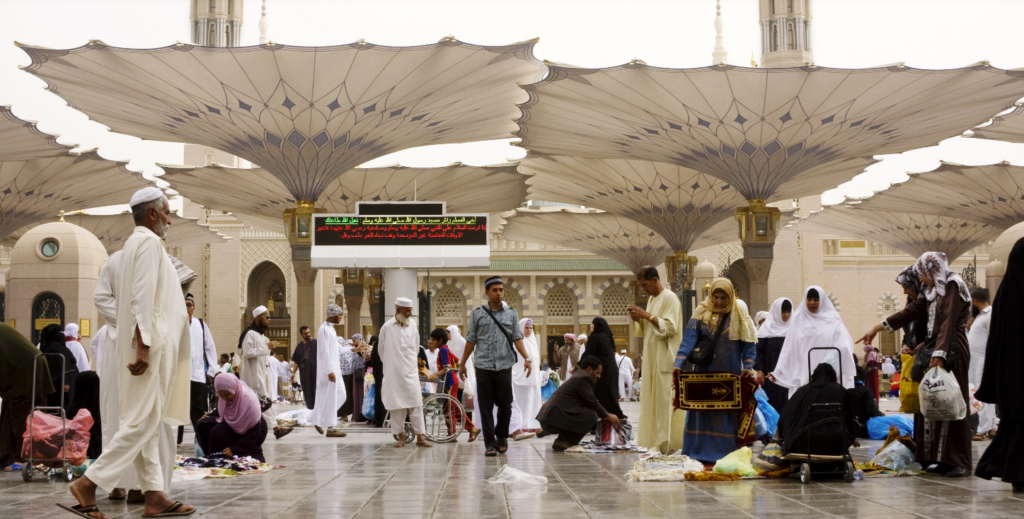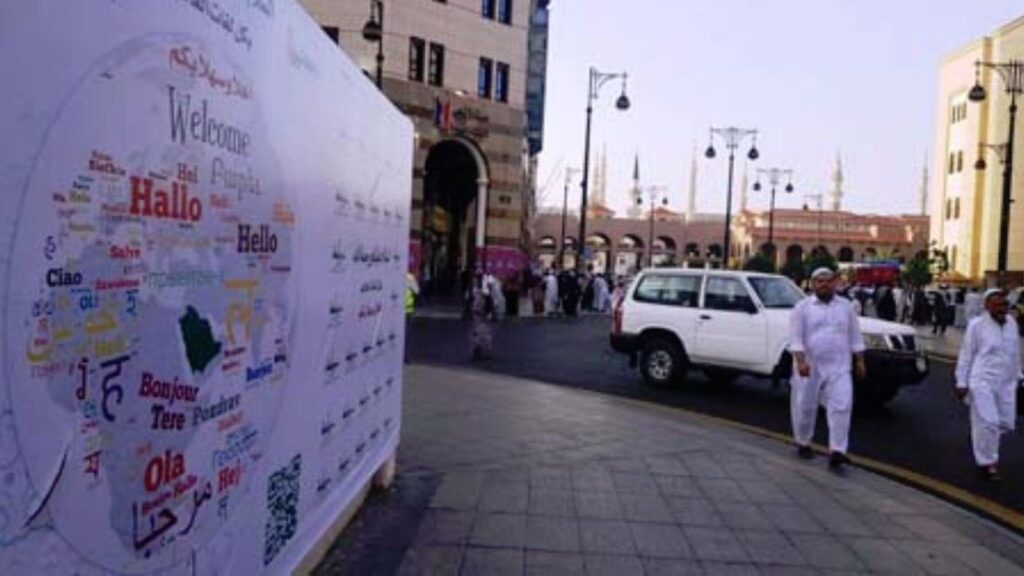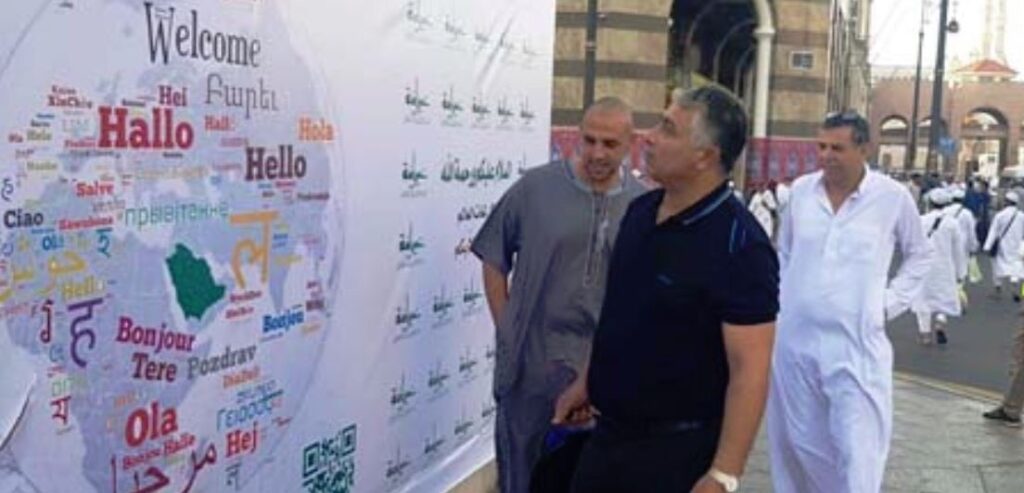“Shalom” has recently appeared on a welcome sign in Medina, Saudi Arabia, stirring debate and raising numerous questions among Muslims and observers worldwide. The Hebrew word—which translates to “peace”—is prominently displayed on a large billboard that greets visitors to the Prophet’s Mosque, alongside greetings in multiple global languages.
Hebrew Greeting Sparks Controversy
According to the “Israel in Arabic” Twitter account, Saudi authorities included Hebrew as one of the official welcome messages, posting four images of the sign and highlighting the word “Shalom.” While the account did not specify exactly when the billboard was placed in Medina, its existence has generated significant discussion across social media platforms. Many users have expressed outrage or confusion, especially since Saudi Arabia traditionally restricts non-Muslims from entering the holy cities of Mecca and Medina. Critics argue that a Hebrew greeting is at odds with these longstanding religious rules, given that Hebrew is predominantly spoken by Jewish people—who would generally be prohibited from entering Islam’s sacred sites.

Allegations of Increasing Normalization
This development is not the first time questions have arisen about possible Saudi-Israeli rapprochement. Analysts note a series of recent steps that appear to signal a degree of normalization:
-
-
Invitation to Holocaust DelegationThe Secretary-General of the Muslim World League, Mohammad bin Abdulkarim Al-Issa, announced plans for a Holocaust survivors’ delegation to visit Saudi Arabia. This invitation, publicized in a video featuring Al-Issa, raised eyebrows as it represents an unprecedented move in the Kingdom’s traditionally conservative diplomatic landscape.
-
-
-
Israeli Traveler’s Visit to MedinaAdding to the controversy, leaked reports and video evidence suggest that Israeli visitors have entered Medina despite restrictions on non-Muslim entry. In a recent incident, the Israeli Jewish traveler, Alek Bollard, traveled from the United Arab Emirates into Saudi territory. He posted video clips near the Prophet’s Mosque and documented a visit to Khaybar Fort, a historically significant site in Islamic history. Such incidents fuel public debate about the Kingdom’s stance on non-Muslim access to holy cities.
-

Mixed Reactions on Social Media
The images posted by “Israel in Arabic” provoked widespread reactions on Twitter and other social media platforms. Many Muslims expressed frustration, arguing that displaying “Shalom” in Medina implicitly acknowledges an audience that, according to Islamic rules, should not be present in the area. Others questioned whether Saudi Arabia is quietly relaxing entry rules for certain visitors or if the sign simply serves an international public relations goal.
Still, some voices advocate for intercultural dialogue, pointing out that “Shalom” shares roots with the Arabic word “salam,” both meaning “peace.” These individuals suggest that the sign is a gesture of goodwill rather than an indicator of policy shifts. However, the timing—coupled with reports of Israeli travelers filming themselves in the vicinity of the Prophet’s Mosque—has amplified suspicions of deeper political intentions.
No Official Clarification from Riyadh
As of the last reported date in May 2019 (when the images first surfaced), no official statement had been issued by the Saudi government regarding the Hebrew signage. Riyadh has similarly remained tight-lipped in light of recent rumors and videos alleging visits by Israeli nationals to Medina. The lack of clarity has left Muslims around the world pondering the implications of a Hebrew welcome sign within one of Islam’s holiest sites.

A Sign of Changing Times?
While supporters of Saudi policy argue that inclusion of multiple languages is a gesture of hospitality, many critics highlight the apparent contradiction: If non-Muslims are not permitted to enter Medina, why feature Hebrew specifically, especially when it is predominantly associated with Jewish speakers? The controversy underscores a broader debate about normalization between Saudi Arabia and Israel—whether through diplomatic channels, shared security interests, or subtle cultural exchanges.
For now, the welcome banner bearing “Shalom” remains a focal point for discussions around religious sanctity, political alliances, and the Kingdom’s future direction. The ongoing debate also reflects the complexities of balancing religious traditions, national policies, and global engagement—particularly in an era of swift political changes in the region.
Sunna Files Free Newsletter - اشترك في جريدتنا المجانية
Stay updated with our latest reports, news, designs, and more by subscribing to our newsletter! Delivered straight to your inbox twice a month, our newsletter keeps you in the loop with the most important updates from our website












